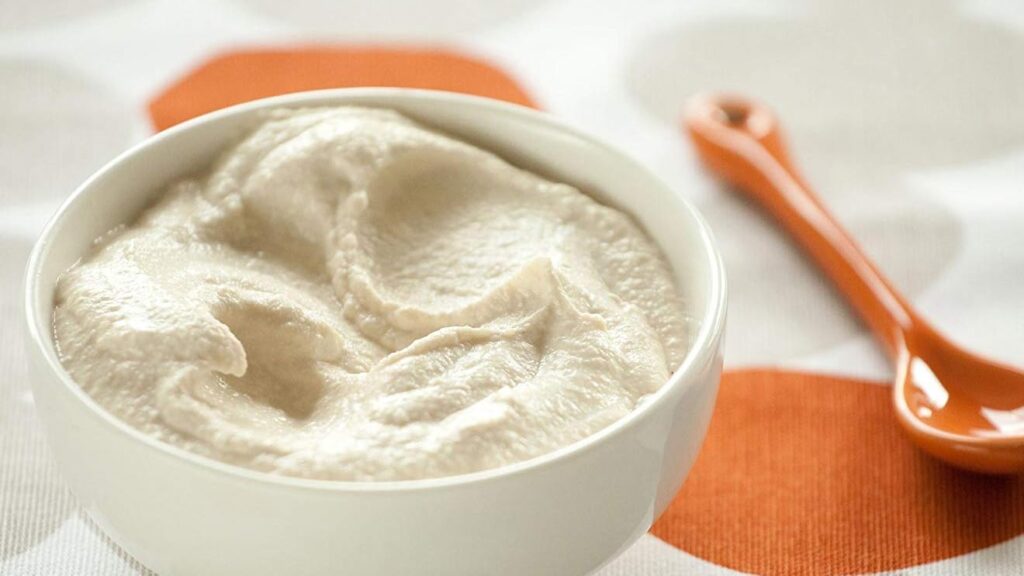
The demand for dairy-free cream market is projected to be worth US$ 413.9 million in 2023 and US$ 777 million in 2033. The United Kingdom, the United States, China, and India are expected to emerge as major producers as the demand for dairy-free cream is predicted to increase at a steady 7.2% CAGR.
The demand for dairy free products has been increasing in recent years, driven by a variety of factors. One of the main drivers is a growing interest in plant-based diets, as more consumers are choosing to reduce their consumption of animal-based products for health, ethical, and environmental reasons. This trend has led to an increase in the availability and variety of dairy-free cream options on the market, such as those made from nuts, seeds, and legumes.
Another important trend is the rising awareness of the environmental impact of dairy production. Dairy farming has a large carbon footprint and can lead to deforestation and other negative environmental impacts. As consumers become more conscious of these issues, they are increasingly choosing to opt for plant-based alternatives to dairy products, including cream.
The increased prevalence of lactose intolerance and other food allergies is another trend driving the demand for dairy-free cream. Many individuals who are lactose intolerant can’t consume traditional dairy cream and so opt for alternative options.
In response to this increasing demand, many companies have begun to invest in product development and innovation in the dairy-free cream market, creating new plant-based alternatives that are designed to mimic the taste and texture of traditional dairy cream. This includes the use of technology such as fermentation, to make cream-like dairy free products that are as close to the traditional cream as possible.
Key Takeaways
- The demand for dairy-free cream is expected to experience significant growth in the coming years, driven by increasing consumer demand for plant-based alternatives to dairy products.
- The rising awareness of the environmental impact of dairy production and lactose intolerance are major factors that are expected to contribute to the growth of the market.
- The advent of technology such as fermentation is expected to enable companies to produce dairy-free cream that mimics the taste and texture of traditional cream, leading to increased adoption of these products.
- The market for organic and natural dairy free products is also expected to grow as consumers are becoming more health-conscious and looking for products that are free from artificial preservatives and ingredients.
- Companies in the market are expected to focus on product innovation, brand building, and targeted marketing to gain a competitive edge.
Competitive Landscape
The dairy-free cream market is a relatively new and rapidly growing market, but it is becoming increasingly competitive as more companies enter the space. The market is still highly fragmented, with many small and medium-sized companies and relatively few large players.
The major players in the market are companies that already have a strong presence in the broader plant-based foods market, such as plant-based milk companies. Some of the key players in the dairy-free cream market include companies like Ripple Foods, Califia Farms, and Silk. These companies produce a wide variety of dairy-free cream and dairy free products, such as almond-based and oat-based creamers.
Another group of key players are the traditional Dairy cream producers, who have branched out into dairy-free creams as an alternative offering to their consumers. These companies have an advantage as they already have strong distribution networks, established brands and a wider range of offerings to consumers.
Small and medium-sized companies are also starting to enter the market, with many of them focused on niche segments such as organic, gluten-free, and non-GMO products. These companies tend to be more specialized and often target a specific consumer demographic, such as health-conscious consumers or individuals with food allergies.
Overall, the competitive landscape of the dairy-free cream market is constantly evolving as new companies enter space and existing players expand their offerings. Companies that can differentiate themselves through product innovation, brand building, and targeted marketing are most likely to succeed in this competitive market.
Key Segments
Product Type:
- Soy cream
- Almond cream
- Oat cream
- Coconut cream
- Others
Source of Ingredients:
- Soy
- Almonds
- Oats
- Coconuts
Application:
- Baking
- Cooking
- Topping
Distribution channel:
- Supermarkets
- Grocery stores
- Health food stores
- Online
End-use:
- Commercial
- Household
Region:
- North America
- Latin America
- Europe
- Asia Pacific (APAC)
- Middle East & Africa (MEA)
About Future Market Insights (FMI)
Future Market Insights, Inc. (ESOMAR certified, recipient of the Stevie Award, and a member of the Greater New York Chamber of Commerce) offers profound insights into the driving factors that are boosting demand in the market. FMI stands as the leading global provider of market intelligence, advisory services, consulting, and events for the Packaging, Food and Beverage, Consumer Technology, Healthcare, Industrial, and Chemicals markets. With a vast team of over 400 analysts worldwide, FMI provides global, regional, and local expertise on diverse domains and industry trends across more than 110 countries.
Contact Us:
Future Market Insights Inc.
Christiana Corporate, 200 Continental Drive,
Suite 401, Newark, Delaware – 19713, USA
T: +1-347-918-3531
For Sales Enquiries: sales@futuremarketinsights.com
Website: https://www.futuremarketinsights.com
LinkedIn| Twitter| Blogs | YouTube

